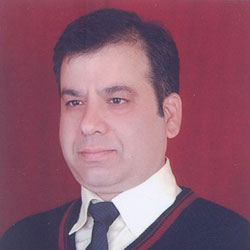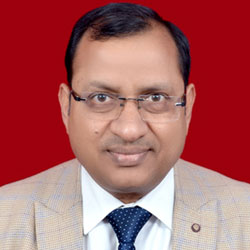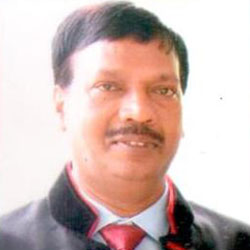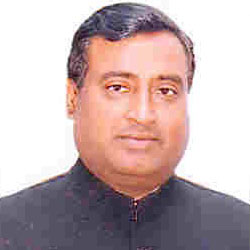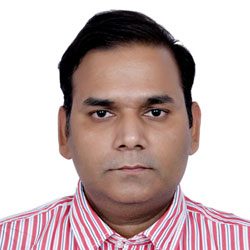Macroeconomic analysis has a long tradition in the Institute and some of the most eminent members of the faculty have undertaken research in this area in the past. Currently, the Development Planning Centre (DPC) and the Reserve Bank of India (RBI) Endowment Unit of the Institute specialize in macroeconomic research. The focus of macroeconomic research at IEG is to carry out in-depth analysis of relevant macro issues for India and other developing countries, and to develop macro-models of the Indian economy.
The Development Planning Centre (DPC) specializes in macro-econometric analysis with special expertise in building macro-models, which are used for the analysis of macroeconomic behaviour and policy and for providing forecasts. This research programme was greatly stimulated after India began to implement the structural adjustment program in 1991. Since then, the research on macroeconomics has widened its scope from domestic closed economy models to open economy macro models.
The models and analysis also began to focus more and more on the market-determined behaviour of the exchange rate, interest rate, private investment and foreign trade.
The techniques of analysis have also been constantly updated. The simple regression analysis has been extended to structural macro modeling, time series analysis, co-integration, vector auto-regression (VAR) and Bayesian forecasting. The econometric analysis now uses not only annual time series data but also higher frequency data, including quarterly and monthly data.
The DPC macro-model, which was initiated in 1996 with technical collaboration from the Indian Planning Commission, the Erasmus University, Rotterdam and the Netherlands Bureau of Economic Analysis and Policy, has reached a certain level of maturity, and is used to analyze a wide range of policy issues as well as provide forecasts for key macro variables.
A special emphasis in the DPC model was to analyse the behaviour of aggregate demand so that it could become complementary to the planning model. Currently, the model disaggregates the economy into three production sectors: agriculture, industry, and services. The model also analyses behaviour separately for the public and private sectors.
A major extension of the structural modeling programme has been the construction of state level macro-models.
This was initiated by a study assigned by the World Bank to regularly forecast growth and inflation rates for four states, namely, Andhra Pradesh, Karnataka, Tamil Nadu and Uttar Pradesh.
Apart from structural macro modeling, the DPC has developed a time series model to forecast and analyse the monthly behaviour of key macro variables, such as inflation, industrial growth, money growth, interest rates, exports, imports, exchange rate and foreign exchange reserves. Since 1998, this set of forecasts is released in the Monthly Monitor, a monthly publication of the Institute.
The faculty also does research on various macroeconomic issues, such as interest rate behaviour, money supply mechanisms, capital flows, growth dynamics, regional inequality, exchange rate dynamics, financial markets and stock market behaviour, commercial banking, etc.
Future research at the Development Planning Centre will continue to focus on econometric exercises and macro-models and that can analyze important macroeconomic issues.
These issues may include interactions between government expenditures in social sector services and labour productivity, possibility of synergy between government spending and private spending on social services such as education and health, interactions between physical infrastructure development and productivity of the various sectors and their impact on sustaining economic growth etc.
The inter-relationships governing employment, poverty reduction and income distribution may also be looked into as will be the implications of the 9% GDP growth target during the Eleventh Plan for agricultural demand and the likely agricultural demand-supply scenarios corresponding to a 4% growth in agriculture.
Possibility of endogenously determining the rate of poverty and employment levels by relating it with growth and income distribution will be attempted. Effect of major asset generation and wage employment generation programmes, on the income of the lower income groups, on the output of different sectors of the economy, and on government finances will also be studied.
The Reserve Bank of India Endowment (RBI) Unit is funded by an endowment grant from the Reserve bank of India. The unit undertakes analysis of various issues relating to macroeconomics, open economy macroeconomic issues and economic reforms. The unit’s emphasis is on applied econometric and causality analysis using the recent time series techniques. Some of the research studies at RBI have been in the following areas
I. Savings behaviour in India and other developing countries and direction of causality between savings and growth
II. Investment behaviour in India and other developing countries and direction of causality between investment and growth
III. Financial liberalization, developments in banking and finance, monetary policy, optimal level of interest rate, etc.
IV. Financial deepening in Asian countries; financial development in Asian countries and exchange rate behaviour, and causes and consequences of Argentina’s crisis.
V. Foreign direct investment (FDI), FDI and exports competitiveness, FDI and technology transfer, FDI impact on investment and economic growth.
VI. Foreign Trade Issues: WTO and Regional trading agreements; China’s entry into the WTO: implications for China and India; TRIPS and India’s Pharmaceuticals Industry and European Union Enlargement: Impact on India-EU Trade.
VII. Impact of reforms on exports, employment and poverty; determinants of employment and wages; impact of economic growth and job security on employment and wages and growth, poverty and inequality in India.
The research output on above issues has been published in numerous international and Domestic Research Journals (such as Journal of Development Studies, Journal of Economic Behavior and Organization, Applied Economics, Economics Letters, Journal of Economics, The Economic and Political Weekly, etc)
The macroeconomic research at RBI Unit includes both individually initiated and sponsored policy oriented studies. Faculty members lend their expertise to both national and international organization in carrying out important macroeconomic studies. Over the past 7 years, the RBI Unit has undertaken research studies for the World Bank, USA; International Development Research Centre (IDRC), Canada; Department for International Development, U.K.; Swiss International Development Agency, Geneva, Shastri Indo Canadian Institute, South Asia Network of Research Institutes (SANEI) Ministry of Finance, Government of India; and others.
In recent years, Indian Economy has experienced high growth rate of more than 8 percent and seems poised to achieve double-digit growth rates. This high growth rate of Indian economy with structural changes poses lot of challenges for macroeconomic management. In this context, macroeconomic research at RBI Unit is likely to involve research on following issues in future
I. Determinants of poverty, employment and wages in India; role of expenditure on health, education and social welfare on poverty.
II. Infrastructure development in India and South Asia; the role of private sector and private-public partnership for infrastructure development.
III. FDI in South Asia: Policy, trends, determinants and impact.
IV. Analysis of determinants of market (or index) prices, price equity ratio in share market and impact of foreign institutional investments.
V. Modeling foreign exchange reserves to find optimal level of foreign exchange reserves for India.
VI. Econometric estimation of the determinants of exports in India and South Asia.
More Links:-
| Faculty | Profile Link | |
| Chakravarty, Sangeeta | Link | sangeeta@iegindia.in , sangeeta@iegindia.org |
| Kar, Sabyasachi | Link | skar@iegindia.in , skar@iegindia.org |
| Sahoo, Pravakar | Link | pravakar@iegindia.in , pravakar@iegindia.org |


